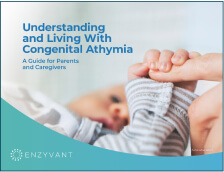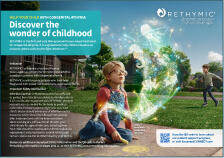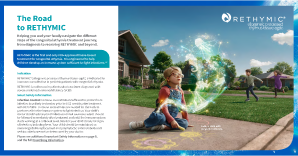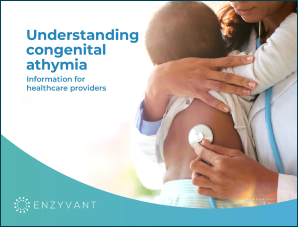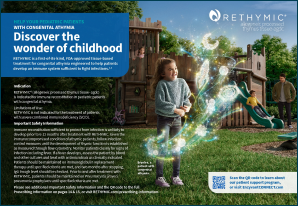Important Safety Information
Immune reconstitution sufficient to protect from infection is unlikely to develop prior to 6-12 months after treatment with RETHYMIC. Given the immunocompromised condition of athymic patients, follow infection control measures until the development of thymic function is established as measured through flow cytometry. Monitor patients closely for signs of infection including fever. If a fever develops, assess the patient by blood and other cultures and treat with antimicrobials as clinically indicated. Patients should be maintained on immunoglobulin replacement therapy until specified criteria are met, and two months after stopping, IgG trough level should be checked. Prior to and after treatment with RETHYMIC, patients should be maintained on Pneumocystis jiroveci pneumonia prophylaxis until specified criteria are met.
RETHYMIC may cause or exacerbate pre-existing graft versus host disease (GVHD). Monitor and treat patients at risk for the development of GVHD. Risk factors for GVHD include atypical complete DiGeorge anomaly phenotype, prior hematopoietic cell transplantation (HCT) and maternal engraftment. GVHD may manifest as fever, rash, lymphadenopathy, elevated bilirubin and liver enzymes, enteritis, and/or diarrhea.
Autoimmune-related adverse events occurred in patients treated with RETHYMIC. These events included: thrombocytopenia, neutropenia, proteinuria, hemolytic anemia, alopecia, hypothyroidism, autoimmune hepatitis, autoimmune arthritis, transverse myelitis, albinism, hyperthyroidism, and ovarian failure. Monitor for the development of autoimmune disorders, including complete blood counts with differential, liver enzymes, serum creatinine, urinalysis, and thyroid function.
Pre-existing renal impairment is a risk factor for death.
In the clinical studies of RETHYMIC, 4 out of 4 patients with pre-existing cytomegalovirus infection died. The benefits/risks of treatment should be considered prior to treating patients with pre-existing CMV infection.
Because of the underlying immune deficiency, patients who receive RETHYMIC may be at risk of developing post-treatment lymphoproliferative disorder. Patients should be monitored for the development of lymphoproliferative disorder.
Transmission of infectious disease may occur because RETHYMIC is derived from human tissue and because product manufacturing includes porcine- and bovine-derived reagents.
Immunizations should not be administered in patients who have received RETHYMIC until immune-function criteria have been met.
All patients should be screened for anti-HLA antibodies prior to receiving RETHYMIC. Patients testing positive for anti-HLA antibodies should receive RETHYMIC from a donor who does not express those HLA alleles. HLA matching is required in patients who have received a prior HCT or a solid organ transplant. Patients who have received a prior HCT are at increased risk of developing GVHD after RETHYMIC if the HCT donor did not fully match the recipient.
Of the 105 patients in clinical studies, 29 patients died, including 23 deaths in the first year (< 365 days) after implantation.
The most common (>10%) adverse events related to RETHYMIC included: hypertension, cytokine release syndrome, rash, hypomagnesemia, renal impairment/failure, thrombocytopenia, and graft versus host disease.
To report suspected adverse reactions, please contact the FDA at 1-800-FDA-1088 or www.fda.gov/safety/medwatch
